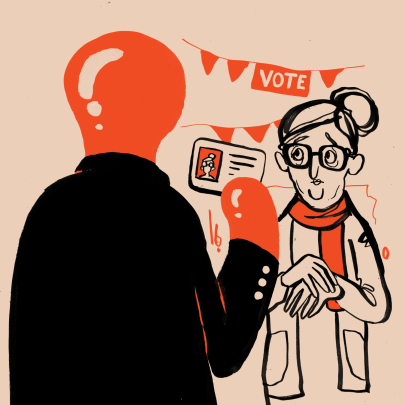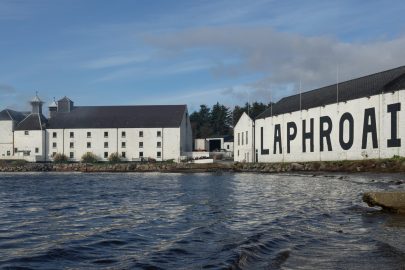May 31, 2022 Politics
After the Falklands War, the official inquiry found it could not justify “any criticism or blame” of Margaret Thatcher’s government for the Argentine invasion, at least on the day it occurred. The inquiry was silent about any other day. It glossed over Thatcher’s withdrawing the UK’s only naval vessel in the region the year before and not reinforcing the Falklands as tensions rose. After all, the resulting war had been won. No government inquiry ever faults a triumphant war leader. So it will be with Jacinda Ardern and Covid-19. And fair enough. New Zealand won the Covid War with just dozens of casualties rather than the thousands initially feared.
Like the Falklands, the Covid inquiry must at least allude to what might have been done better, even as it deals light-handedly with mistakes. Future prime ministers and health officials may then read between the lines when preparing for the next pandemic.
Ardern’s critics mostly charge she was too restrictive. Her own slogan — “hard and early” — supports that narrative. But she was initially slow to act. Three Januaries in a row, her Government went on holiday. It dithered over introducing public health measures in 2020, launching the vaccination programme in 2021 and preparing for Omicron in 2022.
Our first cases were in February 2020. By mid-March, Ardern was being accused of risking public health so 7000 people could gather indoors for the first anniversary of the Christchurch terrorist attacks. Only after private pressure from an odd coalition of bureaucrats and billionaires did she cancel the event. The border wasn’t closed to foreigners until 19 March and the first lockdown didn’t start until 26 March. MIQ wasn’t compulsory for all arrivals until 9 April. The inquiry could consider whether we could have used our geographic isolation to keep Covid out entirely by moving a few weeks earlier on each step.
Similarly, had we maintained tougher border controls in the winter of 2021, could we have avoided the four-month Delta lockdown? Should the Government have listened to professors Michael Baker and Peter Davis in the first week of 2022 and introduced tougher controls to keep Omicron out?
Moving faster would have been unpopular and probably politically unsustainable. Success required huge public support, meaning Ardern was right to consider the politics of every decision. Still, for next time, the inquiry could consider how many more lives might have been saved had she truly moved “hard and early”.
Procurement has been a problem all along, first with PPE in early 2000. The inquiry could explore why that wasn’t seen as a warning of what was ahead with vaccines and RATs. Neither Ardern nor Scott Morrison has given an adequate explanation for why New Zealand and Australia were so slow in obtaining vaccines. We came within days of running out in June 2021, avoiding it only because health boards were directed to slow down injections and by helping ourselves to an emergency 100,000 doses destined for poorer countries under the World Health Organisation’s Covax scheme. Why was a centralised model used for the vaccine rollout, instead of recruiting flax-roots providers from the outset?
The inquiry should examine how well the $60 billion Grant Robertson borrowed was invested. Why was there no major improvement over two years in ICU capability? And why weren’t border exemptions given to ICU nurses as they were for DJs? Was it wise for the Reserve Bank to print money when this would obviously fuel property prices and inflation, leading to the greatest transfer of wealth from the poor to the rich and from the young to the old in New Zealand’s post-colonial history?
Worrying stories circulate around the Auckland business community and Wellington bureaucracy about why the government was so averse to saliva PCR testing and saliva and nasal RATs. The inquiry must provide credible answers to maintain confidence in the integrity of New Zealand’s government procurement. How were the estimates of the Government’s testing capability so wrong that Ashley Bloomfield had to publicly apologise?
The inquiry must determine why the Government’s Covid response only ever seemed, at best, to be “pretty legal”. The High Court found the first nine days of the first 2020 lockdown were unlawful. The Government might argue that necessity and urgency trump legality, but they had weeks to get the law right. Future prime ministers need clarity about what type of responses they can lawfully order in emergencies.
The High Court also ruled against the vaccine mandates the police and the military imposed on their personnel. You might think those agencies should have an absolute right to impose such health requirements, but it’s not clear the law agrees. The application of some MIQ rules — most especially the hated lottery — was also of dubious legality. Information from the podium of truth became increasingly difficult to reconcile with known facts.
In emergencies and under pressure, political leaders must make decisions that later turn out to be wrong. Sometimes, in a crisis, they have a duty to distort information or even lie to maintain confidence. Yet when things go wrong or they are forced to mislead, leaders should admit it as soon as possible.
The bigger controversy after the Falklands War was Thatcher having ordered a nuclear-powered submarine to sink the General Belgrano. Her decision, made quickly, cost 323 Argentine lives. It was at least questionable. Yet she could never admit the slightest doubt or fault. Despite her account being confirmed as correct 30 years later, her refusal to countenance even the possibility of an alternative damaged her reputation for telling the truth.
Ardern faces a similar risk if the forthcoming inquiry is not as wide as possible. Voters will forgive her for getting some things wrong. But not if she fails to commit to transparency, the possibility of her own fallibility, and the need to help her successors do even better with the pandemic of 2119 than her Government managed with the one that began in 2019.
–






